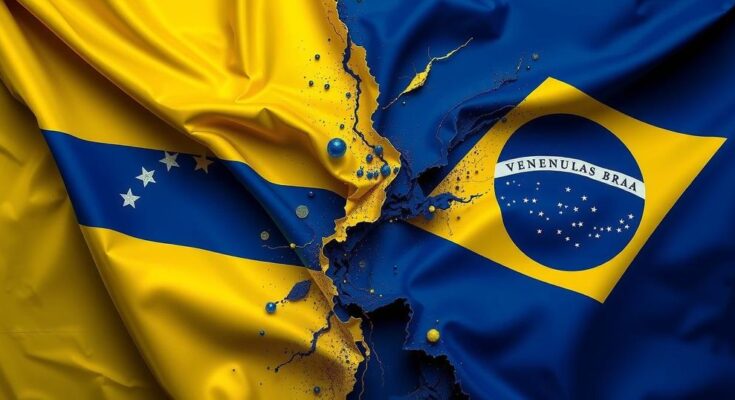Venezuela recalled its ambassador from Brazil in response to perceived interventionist comments from Brazilian officials, particularly targeting Celso Amorim, foreign policy advisor to President Lula. Tensions escalated following Venezuela’s disputed presidential election and Brazil’s veto of Venezuela’s BRICS admission. The diplomatic relations are strained, with significant migration and trade between the countries further complicating matters.
The Venezuelan government has announced the recall of its ambassador from Brazil due to what it perceives as “repeated interventionist and rude statements” emanating from Brasilia. Additionally, officials from Venezuela have indicated plans to summon Brazil’s business envoy for discussions related to these tensions. Venezuela’s foreign ministry specifically criticized Celso Amorim, the chief foreign policy advisor to Brazilian President Luiz Inácio Lula da Silva, stating that he demonstrates an affinity for North American interests rather than addressing the matters that solely pertain to Venezuela and its democratic processes. The political strains between the two nations escalated following Venezuela’s recent presidential election, which occurred in late July and has been marred by controversy. Many global leaders, including President Lula, have urged Venezuelan electoral authorities to disclose official ballot tallies. Although President Nicolás Maduro asserted victory in the electoral contest, there has been a notable absence of published official voting results, leading the Venezuelan opposition to cast doubt on the legitimacy of the outcome by releasing numerous scanned receipts from voting machines they contend demonstrate a significant win for their candidate. This deterioration in bilateral relations was further compounded when Brazil opposed Venezuela’s attempt to join the BRICS economic group, a decision that Venezuela has decried as both “inexplicable and immoral.” Over recent years, an estimated 600,000 Venezuelans have relocated to Brazil, and in 2022, trade exchanges between the two countries totaled approximately $1.3 billion in Brazilian exports and $400 million from Venezuelan shipments.
The tensions between Venezuela and Brazil underscore the ongoing political turmoil in Venezuela following a controversial presidential election. Amidst this backdrop, Brazil has publicly expressed concerns about the electoral process, reflecting a broader international call for transparency and democratic integrity in Venezuela. The political dynamics are complicated by the significant migration of Venezuelans to Brazil and the intertwined economic interests between the two nations, making diplomatic relations particularly crucial for both parties. This situation exemplifies the complexities of regional politics in South America, where historical ties and present-day issues intersect.
In conclusion, the recall of the Venezuelan ambassador from Brazil marks a significant diplomatic rift attributed to perceived interference by Brazilian officials. As both nations navigate the repercussions of the disputed electoral process in Venezuela and broader regional political tensions, the situation remains precarious. The actions taken by Venezuela may lead to further strain in diplomatic relations, particularly as discussions unfold regarding Brazil’s stance on regional integration and electoral integrity.
Original Source: www.usnews.com




